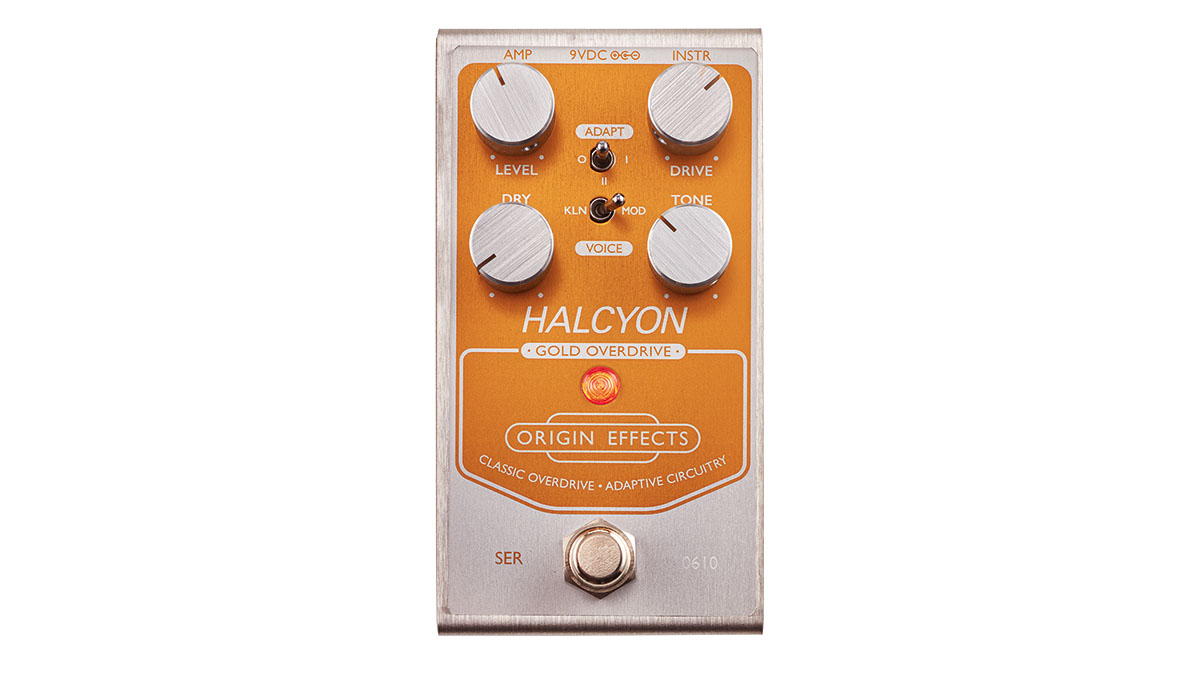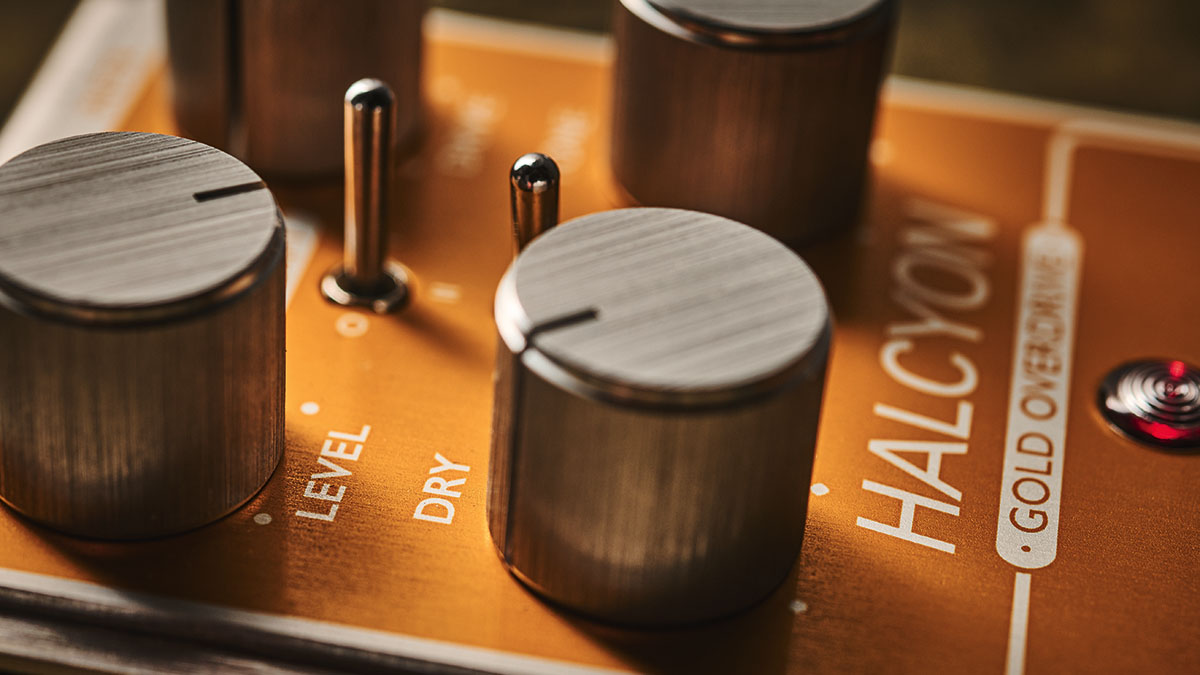Guitar World Verdict
Origin Effects has not only expanded the range of sounds you’d get from a Klon-style pedal, it’s also added practical flexibility in the way that you’d use one.
Pros
- +
Excellent build quality.
- +
Compact size.
- +
Accurate Klon tone.
- +
Advanced dynamic response and clean-up characteristics.
- +
Two voicings.
- +
Adjustable dry sound.
Cons
- -
Not cheap.
You can trust Guitar World
What Origin Effects did for the Tube Screamer with its Halcyon Green Overdrive, it is doing again for the Klon Centaur with the Halcyon Gold Overdrive – taking the essence of a classic overdrive pedal and moving it a little bit further on in terms of its versatility and playability.
The basic added features that both pedals have in common are threefold: Origin’s Adaptive circuitry can be switched in to automatically adjust voicing in response to pick attack and volume changes; there’s a knob to adjust the amount of dry sound as a component of the signal; and a toggle-switch provides a choice of an authentic original voicing or a modified one.
With its innovative features designed to go beyond the capabilities of the original, this is not a direct Klon clone, but Origin says that it has gone to great lengths to recreate some exact Klon characteristics.
That’s quite apparent in plugging in and playing through the pedal, feeling its touch-sensitivity and hearing familiar transparent boost at low-gain settings and aggressive drive with forward mids at higher gain settings – a Klon’s mid-hump gets more prominent as the Gain knob is advanced.
Therein, though, lies the dichotomy that Origin is aiming to remedy with its Adaptive circuitry. The company believes that Klon players fall in to two camps: those who use it as a boost with Gain low and more of a flat response; and those who turn up the Gain and use the pedal for its drive with that mid-hump pushing through.

The idea with the Adaptive Circuitry is to change that either/or situation and let players use it in both roles simply by utilising guitar volume or playing dynamics, leaving it as an always-on pedal.
This approach can actually work really well. If you set the pedal with a decent amount of gain dialled in and engage the Adaptive Circuitry, what you get is the full mid-drive sound with guitar volume up full.
All the latest guitar news, interviews, lessons, reviews, deals and more, direct to your inbox!

But as you roll it back you start to lose the prominent mids and get a flatter response with the cleaner sound. There’s also plenty of variation to be had by turning up the dry sound for added clarity and bite, or using the Mod setting with its much broader mid‑hump and softer clipping.
Specs
- PRICE: $299/£249
- ORIGIN: UK
- TYPE: Boost/overdrive pedal
- FEATURES: Buffered bypass
- CONTROLS: Level, Drive, Dry, Tone, Adapt switch (0 / I / II), Voice Switch (Klon/Mod), Bypass footswitch
- CONNECTIONS: Standard input, standard output
- POWER: 9V DC adaptor (not supplied) 200mA
- DIMENSIONS: 58 (w) x 124 (d) x 64mm (h)
- CONTACT: Origin Effects
Trevor Curwen has played guitar for several decades – he's also mimed it on the UK's Top of the Pops. Much of his working life, though, has been spent behind the mixing desk, during which time he has built up a solid collection of the guitars, amps and pedals needed to cover just about any studio session. He writes pedal reviews for Guitarist and has contributed to Total Guitar, MusicRadar and Future Music among others.


